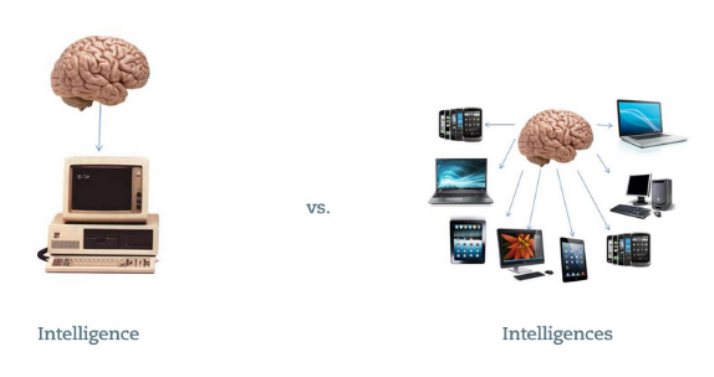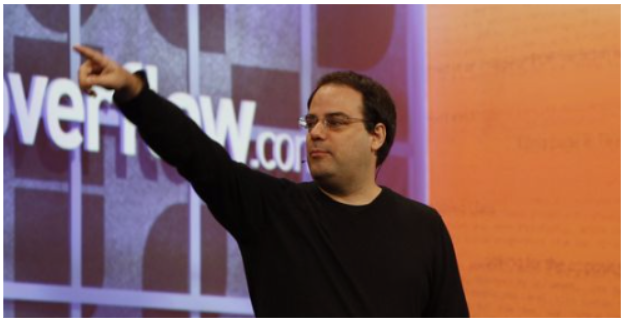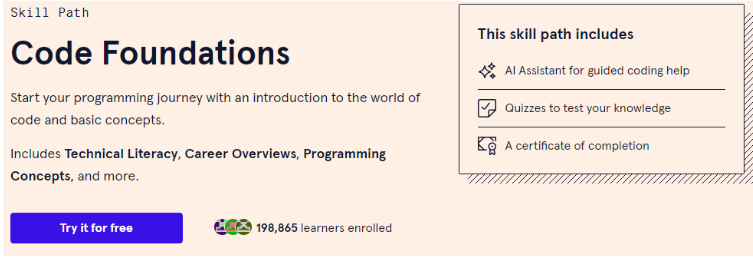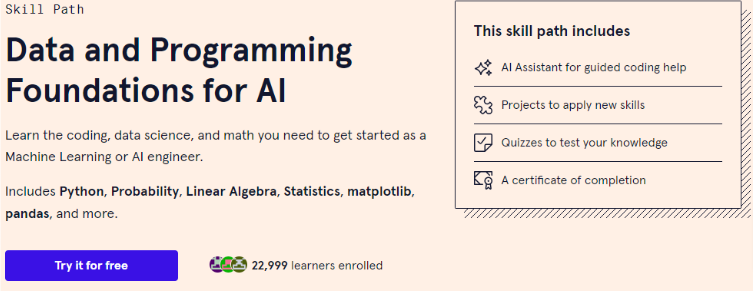There’s no minimum IQ requirement for a programmer. While some studies show programmers tend to score above average on IQ tests, no solid research proves a high IQ is required. Claims like “you need at least 90 IQ” are myths, especially popular on Reddit and forums, but lack scientific backing.
In reality, programming success relies more on logical thinking, persistence, and adaptability than raw intelligence. If you’re curious about how smart you need to be to code, this article breaks it down with facts, studies, and practical advice that genuinely matter.
Let us learn in depth what it takes to be a programmer.
It’s crucial to understand that IQ is just one aspect of intelligence and doesn’t cover all programming-related cognitive abilities.
Average Programmer IQ: How Much Should It Be?
Many people on Reddit and various other platforms claim that a programmer’s IQ of 90 is required. This is false, and no research has been done to back it up.
What I am about to say must not be interpreted as high IQ is a prerequisite for becoming a programmer since there is no definitive study on the average programmer’s IQ.
Here it goes: some anecdotal evidence and research suggest that programmers tend to score above average on IQ tests.
A study by Bergersen and Gustafsson (2011) found that –
- Cognitive abilities, often linked with IQ, show some correlation with programming performance.
- However, factors such as experience and specific programming skills are equally, if not more, important.
This suggests that while a certain level of cognitive ability is beneficial, it’s not the sole determinant of programming success.
High IQ To Be A Programmer- Is It Necessary?
The question “Do you have to be smart to be a programmer?” often arises in programming forums and interviews.
The answer is grey.
In my opinion, “Smartness” in this context is more about problem-solving ability, logical thinking, and persistence than raw intelligence or IQ scores.

Linus Torvalds in the picture above, the creator of Linux, once said,
“I’m a huge believer in personality. I think that people who are smart get computers to work for them, but really, it’s about having the personality to want to take the computer and make it do things.”
This perspective emphasizes that attitude and approach are as crucial as intelligence in programming success.
Are Programmers Smarter Than Average?
While programmers might score higher on specific cognitive tests, “smarter” is subjective.
Programmers often excel in logical reasoning and problem-solving, aspects of intelligence measured by IQ tests. However, these skills can be developed through practice and experience.

A few studies have shown that programmers performed better than novices on cognitive tests related to working memory and logical reasoning. (Study Link)
This could be because they have used their brain to solve many problems over the years, and these abilities were likely honed through programming experience rather than traits one is born with.
Skills That Matter More Than IQ In Programming
Here is a quick table for your reference to help you understand that skills are the king. These are the important skills you should focus on if you want to become a programmer:
| Skills | Logical Thinking And Problem-Solving | Persistence And Resilience | Learning And Adaptability |
|---|---|---|---|
| What it means? | Breaking down complex problems, Developing step-by-step solutions | Embracing new technologies and adapting to changing paradigms | Helps in reaching the end goal or solution |
| Importance | Help is growing over time | Breaking down complex problems, developing step-by-step solutions | Important to stay updated and relevant |
1. Logical Thinking And Problem-Solving
Logical thinking and problem-solving abilities involve breaking down complex problems into smaller, manageable parts and developing step-by-step solutions. Many programmers argue that these abilities are more critical than having a high IQ.

For Example, Steve Jobs once said, “Everybody in this country should learn how to program a computer because it teaches you how to think.”
2. Persistence And Resilience
Programming often involves facing and overcoming numerous challenges, making persistence a crucial trait for success. The ability to stay motivated and keep trying despite setbacks is often more valuable than raw intelligence.

Grace Hopper, also known as the queen of code and a pioneer in computer programming, famously said, “The most dangerous phrase in the language is, ‘We’ve always done it this way.”
Her words emphasize the importance of perseverance and adaptability in facing challenges, traits that aren’t necessarily correlated with IQ.
3. Learning And Adaptability
The tech industry’s rapid evolution makes continuous learning a necessity for programmers. Successful coders embrace new technologies and adapt to changing paradigms. This adaptability often matters more than raw intelligence or IQ scores.

Jeff Atwood, co-founder of Stack Overflow, emphasizes this: “The best programmers aren’t the ones who know the most programming languages or have the most certifications. They’re the ones who can learn the fastest.”
This perspective highlights the value of being a quick learner and staying curious in the field of programming.
Practical Tips For Aspiring Programmers
Here are a few things you should practice instead of worrying about IQ. These tips will help you grow your knowledge in the field of programming and will help you become more confident:
- Practice and learn through resources like Codecademy, which helps you master programming languages and frameworks.
- Engage in puzzle-solving, strategy games, or algorithmic challenges on platforms like LeetCode or HackerRank to enhance logical thinking and problem-solving skills.
- Join coding communities on GitHub, Stack Overflow, or local meetups to find mentors and peers for support.
- Do not be afraid to make mistakes. Remember the only way to learn a new programming language is by writing programs in it.
Courses From Codecademy
If you are wondering where to start, here are my recommendations from Codecademy that will help you develop a greater understanding of Coding and programming:
1. Code Foundations
| Course Link | Here |
| Course Duration | 4 hours |
| Level | Beginner |
| Skills you learn | Learn coding 101, Explore careers in tech, Communicate with developers |
| Certificate | ✅ |
Start programming with an introduction to code and basic concepts, covering technical literacy, career overviews, and programming fundamentals. Includes quizzes, guided help, and a certificate. No prerequisites are required to start this course.

2. Learn JavaScript
| Course Link | Here |
| Course Duration | 15 hours |
| Level | Beginner |
| Skills you learn | Core programming concepts, Learn object-oriented concepts, Read and write JavaScript |
| Certificate | ❌ |
You must learn JavaScript, a versatile language for adding website interactivity. This free course offers AI-assisted coding help, projects, quizzes, and a completion certificate. Suitable for beginners, it covers JavaScript fundamentals, conditionals, functions, and more.

3. Data Qnd Programming Foundations For AI
| Course Link | Here |
| Course Duration | 39 hours |
| Level | Beginner |
| Skills you learn | Code in Python, explore and summarize data, know the math behind ML/AI |
| Certificate | ✅ |
Machine Learning and AI are revolutionizing tech. This course covers data literacy, Python, and essential math and statistics, providing a solid foundation for aspiring Machine Learning Engineers.

4. Learn C
| Course Link | Here |
| Course Duration | 10 hours |
| Level | Beginner |
| Skills you learn | Key programming concepts, write your own C programs, use pointers to work with memory, and create custom functions and structures. |
| Certificate | ✅ |
With the “Learn C” course, you can learn C programming fundamentals in a beginner-friendly way. What I love about Codecademy and this program is that it includes guided coding help, projects, quizzes, and a completion certificate.

5. Learn PHP
| Course Link | Here |
| Course Duration | 17 hours |
| Level | Beginner |
| Skills you learn | Use PHP with HTML forms, create classes and objects |
| Certificate | ✅ |
PHP is a key language for web development, and it is taught in this beginner-friendly course. By the end of the course, you will have gained skills related to PHP, HTML, and more. Includes projects, quizzes, guided help, and a completion certificate.

You can try all these courses for free, but you won’t get a certificate of completion; you need a paid Codecademy subscription. Its subscription may be costly for many people, that’s why the couponcode.academy website is offering exclusive Codecademy Promo Offers that you can claim right now and save big on your purchase.
Related Reads:
Conclusion: IQ Alone Won’t Make You a Great Programmer
While programmers may show strong problem-solving and logical reasoning—traits measured by IQ tests—those skills are often developed through practice, not something you’re simply born with. Persistence, curiosity, and adaptability play a far bigger role in your growth as a coder.
Focus on building real-world skills through learning platforms, projects, and consistent practice. If you’re passionate about programming, don’t let IQ scores discourage you. With the right mindset and effort, anyone can thrive in the tech world—no genius label required.
Ready to start? Explore Codecademy courses and take your first step into coding today!
FAQs
There’s no specific IQ requirement for programming. Skills like problem-solving, persistence, and continuous learning can be developed with practice, regardless of IQ. And these are skills that make a good programmer.
While some programmers may have above-average IQs, it’s not a universal trait or requirement. Many successful programmers attribute their success to hard work, experience, and passion rather than innate intelligence.
Elon Musk’s exact IQ is not publicly known. While he’s considered highly intelligent, there’s no verified IQ score. It’s important to note that success in tech and business, like Musk’s, depends on many factors beyond IQ, including funding, vision, determination, and adaptability.
There is no defined “good” IQ for software engineering. It requires a mix of technical knowledge, creativity, and soft skills that aren’t fully captured by IQ tests.